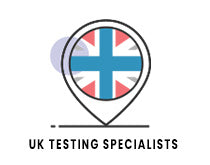Hard Water in London
What is hard water?
If you live in an area with hard water then you will probably be familiar with limescale forming in your kettle, but what is it and where does it come from?
The term hard water is used to describe water that contains calcium and magnesium compounds. Rain water is largely free of all dissolved minerals. How water is collected and delivered to your tap will determine its hardness.
The rock formations in much of the UK are limestone and chalk-based, they have formed millions of years ago from the skeletons of tiny marine organisms rich in calcium and magnesium compounds. As rain percolates through and runs over chalky rocks, it dissolves small amounts of calcium and magnesium, changing its character from soft to hard.
The east and south of the UK are mainly formed of limestone and chalk, so the water, therefore, is hard. The rock formations in Scotland, the north-west, west Wales and the south-west are older igneous rocks and the water collected here is generally soft.
Why does London have hard water?
London has a population of more than 9 million and is served by four separate water companies. Not surprisingly, most of London’s water is drawn from the river Thames in the Heathrow area to the west. The second-largest source of London’s water is the river Lea to the north and the remainder is drawn from boreholes.
The surface geology of the south-east of England is predominantly chalk-based and London is surrounded by chalk hills such as the Cotswolds, the Chilterns and the North Downs. The tributaries of both the Lea and Thames run through these chalky rocks and dissolve some of their calcium and magnesium compounds and become ‘hard water’.
Permanent and temporary hardness
The combined concentration of calcium and magnesium in water is known as the total hardness. Total hardness is made up of both permanent and temporary hardness.
Temporary hardness is caused by the presence of calcium and magnesium bicarbonates. It’s removed when water is boiled leading to the formation of limescale. When water runs through sulphate minerals such as gypsum it picks up calcium and magnesium in the form of sulphates which lead to permanent hardness.
Temporary hardness is a nuisance and the cause of scale formation in boilers, washing machines and kettles. Fortunately, both temporary and permanent hardness can be removed by water softeners.
Is London’s hard water healthy?
The calcium and magnesium that makes London’s water hard are both essential nutrients for our bodies. The NHS advises that adults need 700mg of calcium a day. For example, London water might typically contain 120mg of calcium in every litre, Londoners drinking their NHS recommended 1.2 litres a day will get around 17% of their recommended calcium intake just from their water alone.
Several studies looking at the correlation between water hardness and cardiovascular disease have suggested that drinking hard water may protect the body from conditions such as heart attacks.
Contra to a popular urban myth, hard water does not prevent lead leaching from pipes into your drinking water. If you suspect that you may have lead pipes we recommend testing your water with an independent laboratory service.
Does hard water taste better than soft water?
Across the UK we’re often quick to extol the virtues of the water in our area. Scotland, Bristol, Yorkshire and London have all laid claim to having the UK’s best water. In truth, the taste preference for drinking water is highly subjective.
If you live in a soft water area such as Scotland you might complain about the taste of London’s chalky hard water, and conversely, those accustomed to drinking hard water might insist that it has a superior taste. The top-selling bottled water in the UK, Evian, is relatively hard water whilst the second best seller, Highland Spring, is much softer.
Waters that contain chlorides or sulphates may taste slightly bitter - whether these are a good or bad taste is again a matter of personal preference. One thing most people do agree on is that some tastes are highly undesirable, many of these arise for the disinfection agents such as chlorine which is added to our water to keep it safe by killing bacteria.
Is London’s hard water good for your skin?
The vast majority of Londoners have probably never paid a second thought to the mineral content of the water they shower in. We may well have noticed the superior lather formed by our shampoo when visiting soft water parts of the country but is soft water better for our skin?
A 2018 study conducted by researchers at the University of Sheffield investigated the effect of water hardness and detergents (commonly found in soap and skin washing products) on people with healthy skin and people with eczema. The investigation found that when subjects washed with hard water, traces of the detergents were left on the skin which lead to increased water loss from the skin barrier and subsequently irritation.
Most people won’t experience problems washing in London’s tap water but if you are affected by dry skin or eczema then it may be worth discussing with your dermatologist if a water softener might help.
The bottom line
Like much of the country, London is a hard water area. Water is collected from rivers that run through chalky rocks and have therefore picked up calcium and magnesium minerals that make the water hard. When it comes to taste, it’s a matter of preference but hard water is healthy to drink. Many people prefer the feel of soft water when washing and water softeners can help those with dry skin or eczema. Our independent laboratory water tests can help you determine the hardness of your water, as well as a range of other water nutrients and contaminants.





















